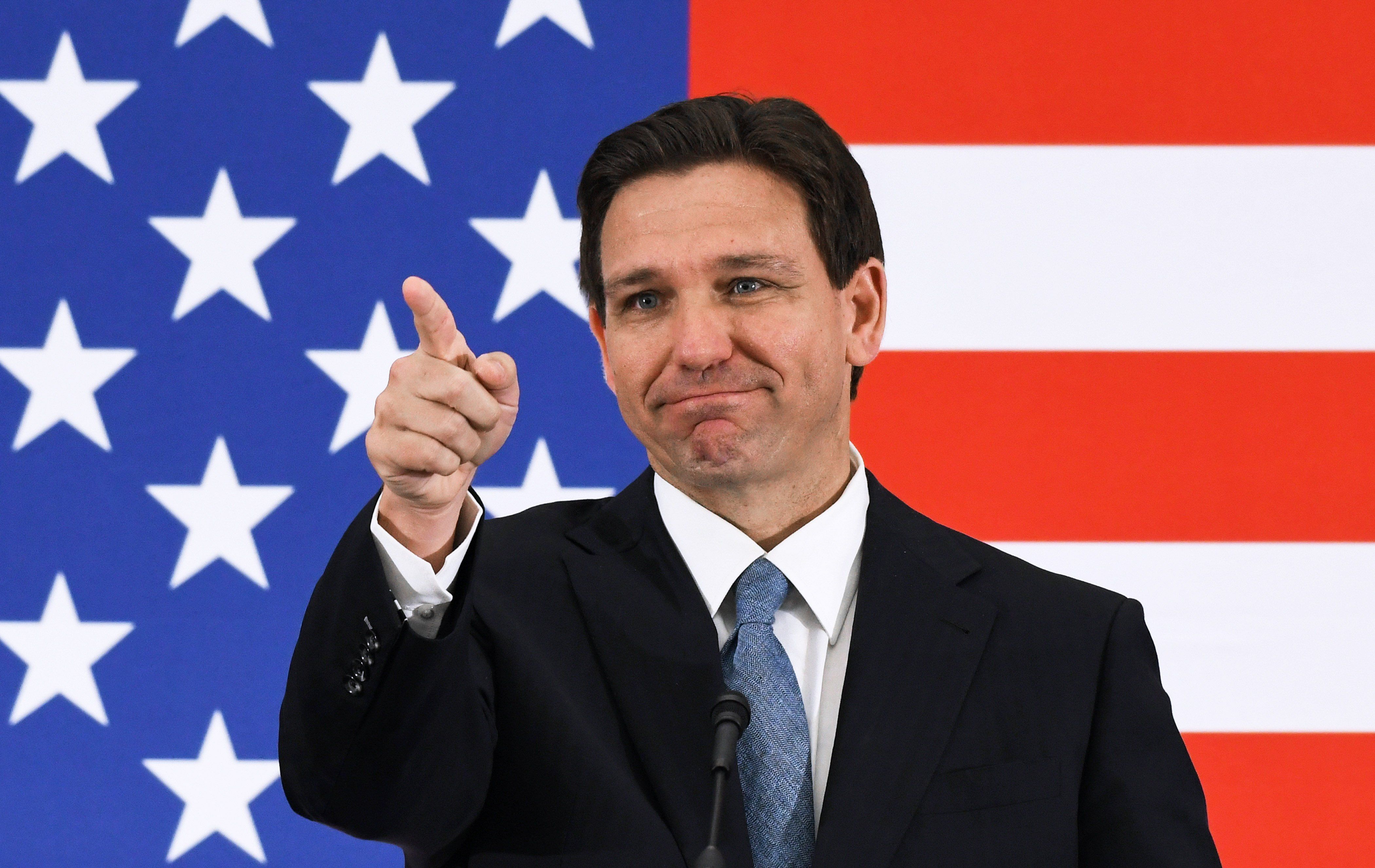It’s taken him time to reach the starting line, but Florida Gov. Ron DeSantis is now set to make his long-anticipated entrance into the 2024 presidential race — and frontrunner and former President Donald Trump looks ready to welcome him.
Latest polls (here, here, here, and here) suggest Trump, who jumped in the race six months ago, leads DeSantis early by blowout margins. But these numbers are the least of the governor’s worries, because they can be explained away (to some extent) by the frontrunner’s big advantage in name recognition, and he still has many months to make up ground.
But DeSantis has much bigger problems with Trump. The first one is tactical. In 2016, candidate Trump made himself the central character on the Republican stage. Through force of personality and an instinct for manipulating ratings-hungry media, Trump forced his GOP rivals to respond directly to him and the challenge he posed for conventional politicians of all stripes. In the process, he divided the anti-Trump vote among several opponents and cruised to the Republican nomination.
In fact, with just seven winner-take-all states in the Republican primaries of 2016, Trump won just 45% of Republican votes but 63% of Republican delegates. As president, he changed party voting rules to enhance this advantage. In particular, he increased the number of states that hold winner-take-all primary elections from seven to 17, ensuring that one leading candidate takes all those states’ delegates rather than sharing them proportionally with runners-up.
With that advantage now being much larger than in 2016, DeSantis must find a way to keep other candidates from siphoning away too many of his anti-Trump voters and leaving him in second place with zero delegates to show for it.
Second, DeSantis knows he can’t win the Republican nomination without the backing of tens of millions of Trump-friendly voters. That's why he’d much prefer to let other candidates take the punishment that follows any frontal assault on Trump.
But Trump has already attacked DeSantis for everything from threatening social security to eating pudding with his fingers. If DeSantis punches back, he angers the voters he’ll eventually need to win, but if he doesn’t, he looks weak.
There is also the complicated question of what kind of attack he should launch. DeSantis continues to try to boost his bona fides as a social conservative and culture warrior by attacking Trump on ideology. “Those are Democrat attacks,” DeSantis said recently of Trump’s criticism of his stance on entitlements. “Donald Trump himself wrote a book where he was talking about the need to increase the age of eligibility for Social Security to 70.”
Trump’s attacks are simpler and more personal. “He’s got no personality. And I don’t think he’s got a lot of political skill,” said Trump in an interview published Monday. It’s a style that has worked for Trump before.
Finally, DeSantis must contend with Trump’s refusal to accept defeat. The Florida governor knows that, even if he overcomes the former president to win the Republican nomination, Trump is unlikely to concede and quietly leave the stage. DeSantis may well face accusations he cheated to win and charges that he’s a traitor to Trump’s populist movement.
And if Trump costs DeSantis a few key votes in a few key states against President Biden next November — either because Trump urged supporters not to vote or even ran as an independent candidate — DeSantis is likely to lose.
Gov. DeSantis remains enormously popular back home in Florida. But can he pull Trump voters from Trump while withstanding the attacks the former president has already begun to launch?
As a great man once said, it’s a good trick if you can do it.
